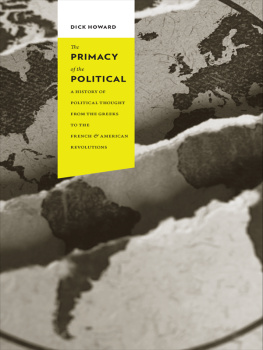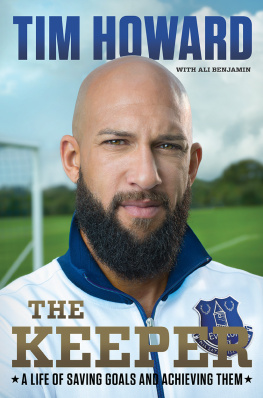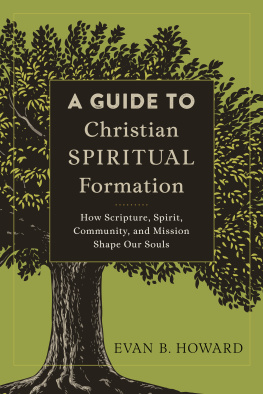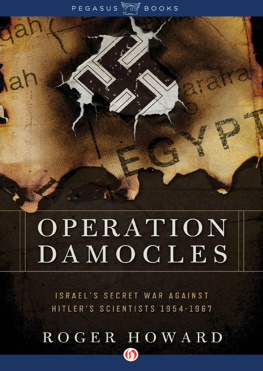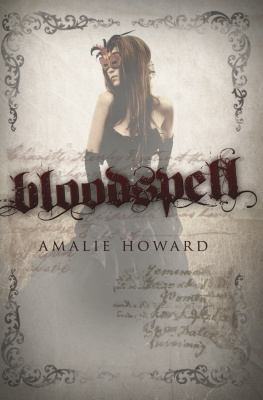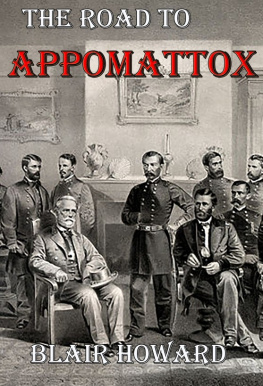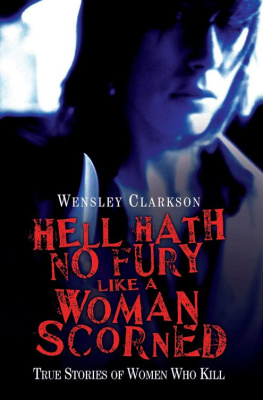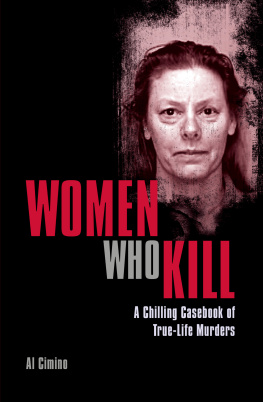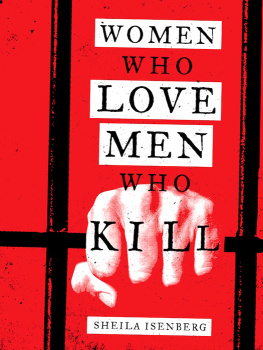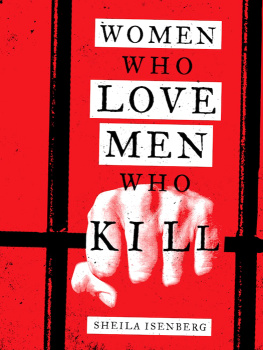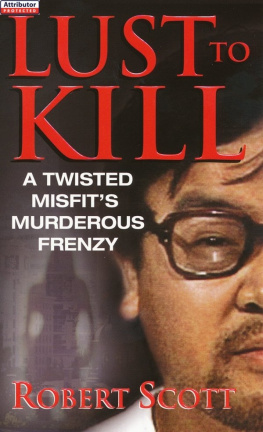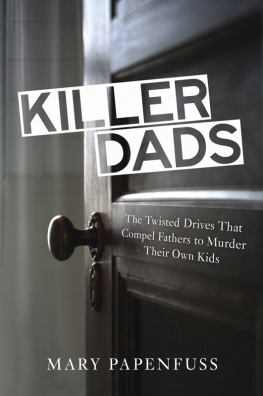ABOUT THE AUTHOR
Vanessa Howard is a journalist and author. As a feature writer, she specializes in real life stories and has written for womens magazines, the press and broadcasters. Her non-fiction books have covered murder and reconciliation, unsolved UK murders and the psychology of female violence. She is married and has two children.
WOMEN WHO KILL
Vanessa Howard


New York London
2010 by Vanessa Howard
All rights reserved. No part of this book may be reproduced in any form or by any electronic or mechanical means, including information storage and retrieval systems, without permission in writing from the publisher, except by reviewers, who may quote brief passages in a review. Scanning, uploading, and electronic distribution of this book or the facilitation of the same without the permission of the publisher is prohibited.
Please purchase only authorized electronic editions, and do not participate in or encourage electronic piracy of copyrighted materials. Your support of the authors rights is appreciated.
Any member of educational institutions wishing to photocopy part or all of the work for classroom use or anthology should send inquiries to Permissions c/o Quercus Publishing Inc., 31 West 57th Street, 6th Floor, New York, NY 10019, or to .
ISBN 978-1-62365-316-3
Distributed in the United States and Canada by Random House Publisher Services
c/o Random House, 1745 Broadway
New York, NY 10019
www.quercus.com
To the women that strive to make a difference
and who never make the headlines.
ACKNOWLEDGMENTS
I would like to thank the following for their help and support: Nick Scola, Graeme Gwyn, Willie Johnston, Lynne Vernon, Simon Barraclough, Mark Baker, Seamus Burke, Mick McCarron, Steve Arthur, Geoff Howard, Nick Johnston, Sarah Goodall, Neil Coyte, Karen Reeves, Cathie McGunnigle, Wensley Clarkson and David Howard.
CONTENTS
CHAPTER ONE
Chelsea OMahoney
The Happy Slapping Killer
A mob is the scum that rises upmost when the nation boils
John Dryden
David Morley had known hatred. In some ways, his life had been buffeted by it but he refused to let it defeat his spirit. As a gay man, hed known casual and derogatory abuse but by the late 1990s he felt that the worst might be over. It wasnt.
David was a bar manager in Soho, an area of central London that has long prided itself on its tolerance. Its cleaned up its act somewhat since its seedier image of the 1960s when it was synonymous with strip joints, drugs and prostitution. It is now dominated by bars and restaurants and attracts equal numbers of tourists and Londoners. There is a thriving gay scene, a number of bars and nightclubs that draw good crowds, something that another David, David Copeland, was aware of.
On April 30 1999, Copeland traveled to central London from his rented room in Hampshire. His aim was simple. The Admiral Duncan on Old Compton Street in Soho was a gay-friendly pub and was to be his third target. He had, in the course of a few days, already detonated nail bombs on Electric Avenue in Brixton and Hanbury Street, close to Brick Lane. These were his terror attacks on Londons black and Bangladeshi populations. Now he turned his attention to the gay community.
Copeland was a neo-Nazi and member of an organization calling itself the National Socialist Movement. His aim was to stir up a race war and attack degenerates for good measure. The bombs in Electric Avenue and Hanbury Street caused injuries but no fatalities but the bomb in the Admiral Duncan killed three customers: Andrea Dykes, out celebrating her pregnancy along with her husband Julian and two of their close friends. Of the group of four, only Julian Dykes survived.
The pub was a scene of devastation; four people would suffer amputations and close to eighty people were injured. David Morley was working behind the bar when the nail bomb exploded. He suffered burns to his head and hands but continued to help others before he was treated. After he recovered, he was told that the hearing loss to his left ear would be permanent but he worked tirelessly to reopen the bar, determined that an act of hate should not be allowed to triumph.
It was from Soho that he set out with a good friend, Alistair Whiteside, some five years later, walking for ten to fifteen minutes until they reached the South Bank. Set on the south side of the Thames, it is home to the Royal Festival Hall, Hayward Gallery and the London Eye and no matter the hour, this stretch of the river always seems to throng with activitya perfect place, David and Alistair thought, to unwind after a busy night at work.
There has always been more than one London. There have always been the haves and have-nots, the law-abiding and the wrongdoers, those who seek to blend in and those who seek to stand out. The same landscape, the same streets can be a safe metropolis to one man and a hunting ground for another. David Morley, survivor of one hate-fueled act, was about to be targeted by another. Tragically, it would not be an attack he would walk away from.
A month prior to the night that David Morleys life was taken a fourteen-year-old girl wrote in her journal, Whats goin on I just come home yesterday I had an all nighter with Barry, Darren and Reece. It was Jokers or we went bare places. I was happy all night because Barry kept ramping all the time. Teenagers have long nurtured slang, creating and evolving it to ensure that they belong to one group and stand outside the adult world. Chelsea OMahoney was used to dividing one world from another, moving between the two when necessary, camouflaging what she truly felt at all times.
Even the diary entry wasnt an honest interrogation of what she thought, it was little more than an exercise in belonging. By talking through what she had participated in in the lingua franca of the group, she was playing with one aspect of her identity. Her teachers would not have recognized this Chelsea. They believed she was a bright and creative young girl and were horrified to hear the journals contents when they were presented at her trial. But Chelsea always needed to feel that she belonged and it was a longing that would have a deadly endgame.
Them lot bang up some old homeless man which I think was bad, which I think is bad but even though I was laughing though. Then we went back to Neekys yard to cotch. David Morley had three weeks to live. As his life was narrowing to one point, so was Chelseas. The night her gang decided to embark on an all nighter. The night that she would participate in an hour-long rampage of violence. The night she would record their attacks on her mobile phone. It would not be her male counterparts that would adorn every newspaper, it would be her. Because, as a fourteen-year-old girl, she acted without mercy, without compassion and the judge elected to remove restrictions on reporting details of her identity, even though she was a juvenile. He wanted it to be a wake-up call. How could a young girl take part in a vicious gang killing?
Her decline into lawlessness and violence didnt happen overnight. Chelsea may have reached a new level of notoriety because of her gender but her life story holds an all too common pattern of neglect and abuse suffered by too many boys and girls in the inner cities. She is one of an army of the neglected.


